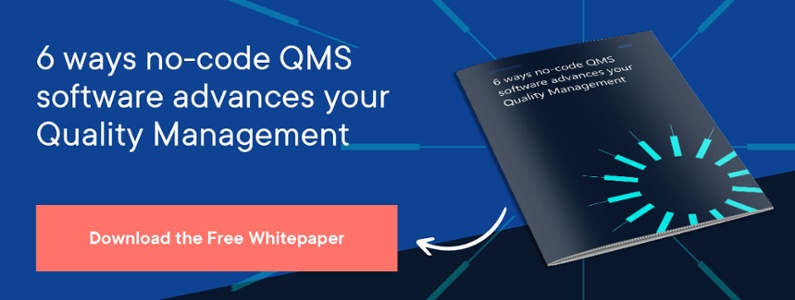Software implementation can be difficult, can take a lot of time, can cost a lot of money, can require costly external consultants. But for a LIMS implementation, it doesn’t have to be like that.
Every business has its own business model. Gillette sells cheap razors but its replacement blades are expensive. Apple markets products that are actually no better than phones or laptops that cost $400 less, with a business strategy that taps into consumer snobbery and brand mystique. The software Gartner recommends is usually from vendors with the deepest pockets, who charge a fortune if not for a ‘suite’ of products, then for the weeks and weeks it takes to implement them.
Gartner and Forrester generally don’t have a lot to say about total cost of ownership and implementation. That is, says Forrester, because no two software projects are alike, making it impossible to generalize about implementation.
True. But what you can say is that the big vendors who tend to float to the top of the analyses are those that charge the most, and whose business models rely most heavily on income from consulting.
When were consultants invented? Probably in the early 1990s, when Gillette launched its first twin-blade razor. Consultants quickly became (and still are) a sort of priesthood of late capitalism.
That particular bubble has not burst yet. In the aggressive blame culture that pervades modern business, the safe option is to hire consultants at $500 an hour. That’s the paradox. Businesses talk endlessly about innovation, but in the end, most of them stick to what they know.
Read what our customers say
Don’t take our word for it. Read what our customers have to say about implementing AlisQI on Capterra.
How we approach implementations
This is not the AlisQI way. We do not sell our platform with the in-built calculation that you’ll need to at least double your initial outlay to implement it. Our ambition is to write great software, not to consult.
One of the driving ideas behind the development of our quality management platform was that it should be simple to implement – or rather, that the end user had to be able to do most of the implementing, an important nuance.
Our no-code business model encourages engagement with your QMS from day one.
Cost avoidance is by no means the only advantage. The longer these implementation projects drag on, the higher the risk of disengagement by the end user. That is the last thing we want. We want end users to enjoy our tool. Early and extensive involvement during the implementation phase builds confidence, not just to manage the platform going forward, but to experiment with it, play around with it, and explore new ways of boosting quality.
Omnipresence and inclusivity are hallmarks of Quality Intelligence maturity. Quality insight is there to be shared, and we extend this code of generosity to all our clients, collectively. We recently took a new client to the factory of a long-standing customer to see how it (a manufacturer of cleaning and hygiene products) had deployed AlisQI. The visit was a real eye-opener, and an inspiration to our new client, giving it the confidence to implement AlisQI internally.

Our implementation timeline
Generally, we find that organizations need to set aside 10 to 20 man-days for the duration of a project. The implementation is incremental; you do not need to have rolled out the entire system before you can start using it. The AlisQI platform starts building your omnipresent and automated quality management virtually from day one.
The rough estimates for an average project are as follows. Our Quality Control or LIMS module would take between 6 to 8 weeks to implement, and require an AlisQI effort of 2 to 3 days a week. We usually steer the projects online. Implementation of our Document Management module usually takes between 3 to 6 weeks, with an AlisQI (online) presence of 2 to 3 days a week. The QESH roll-out spans between 2 to 3 weeks, with AlisQI involved 2 to 3 days a week.
The AlisQI pilot
These ballpark figures will be considerably lower if a manufacturer has piloted the platform, as most do because the service is absolutely free.
Our pilot is a ‘mini-implementation’ in which we implement 10-20% of the process to enable manufacturers to evaluate the platform in practice. The pilot is completely representative of the application, the complexity of the implementation, and the performance of the cloud platform. We regard the pilot as much more than a freebie or a sample but treat it as a fully-fledged project. A project on a smaller scale admittedly – but that is the only difference.
The AlisQI pilot gave us the opportunity to experiment extensively, without obligation or incurring costs.
Manager QC Laboratorium Koppert Biological Systems André Bloem
The pilot runs for one month. It is up to the organization how it wants to trial the system: as a test environment, a shadow process, or as part of the actual quality management. Several of our clients used AlisQI to support their production process in the pilot phase, meaning that the platform was effectively live.
Because our platform is easy to set up and intuitive to use from day one, our pilots are highly successful: manufacturers can see immediately that AlisQI will transform the way they do quality management. This is another and perhaps unforeseen advantage of our no-code business model.
If you want to find out more about how quickly AlisQI can transform your quality management, download our whitepaper ‘AlisQI: No-code quality management’ by clicking the button below.
No-code Quality Management
While technological change is accelerating, the capacity to absorb this change becomes a bottleneck for many manufacturers. No-code Quality Management Software helps to eliminate this bottleneck.
Learn how no-code quality management can benefit your business.



